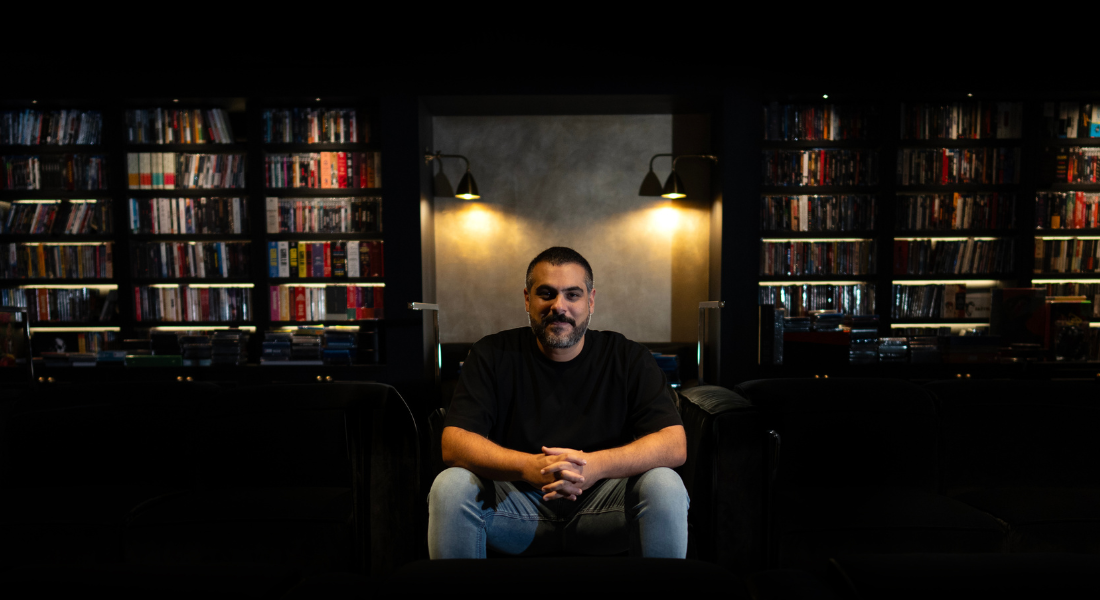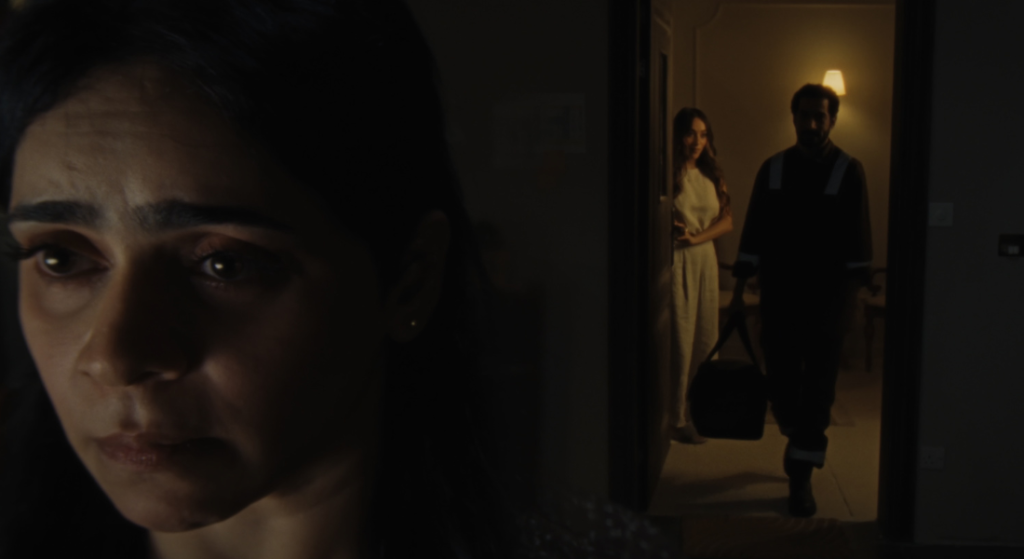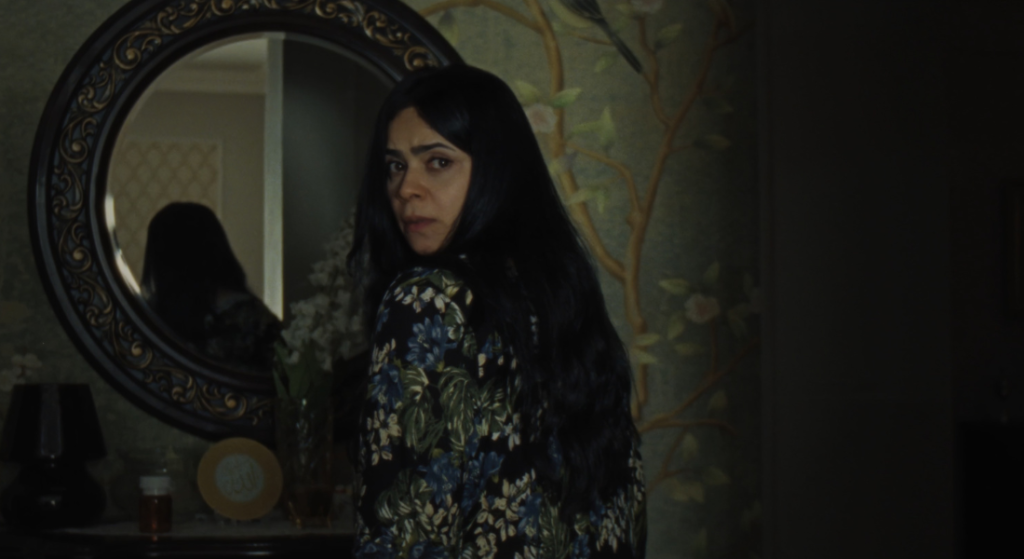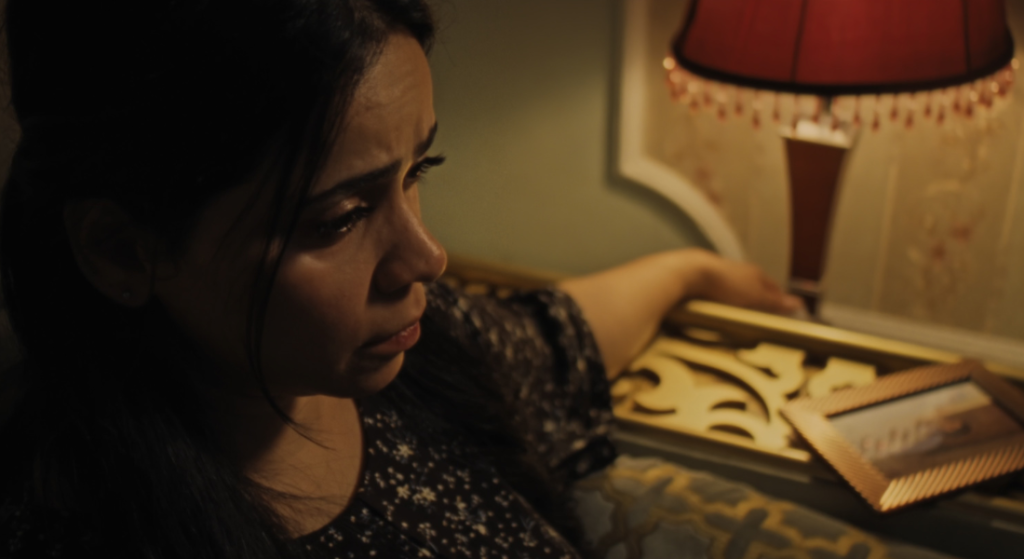
At first glance, being tasked with finding horror in the mundane, everyday corners of life may seem a Herculean task. But, scratch the surface of day-to-day life and you don’t have to dig deep to find it.
It’s there in the uncomfortable flop sweat of the work-sleep-repeat grind, in the non-specific irritation of tricky relationships, and the grin-and-bear-it attitude of the job you barely tolerate.
And right there, inhabiting the gaps in our lives where the slow creep of disquiet lurks, is where we find the subjects favoured by Emirati filmmaker Majid Al Ansari.
He is a man who’s quite unsettlingly comfortable in scenarios usually deemed uncomfortable. “I gravitate toward psychological unease because it allows the audience to inhabit the same space as the character, to feel their uncertainty and dread in real time,” Majid explains. “For me, horror and thrillers are at their most powerful when they take places or relationships we naturally associate with safety – our homes, our families, our daily routines – and then destabilise them.”

Fresh off his Best Horror Feature win at the Fantastic Fest film festival in Austin Texas for his latest film, Hoba (The Vile), the person Villa 88 Man interviews is a man on the precipice of global recognition, both forward-looking and reflective.
“I didn’t film anything or dream of being a director [as a kid], I just loved watching movies,” he recalls. “After the Gulf War, my uncles were stationed at a military base where a lot of Americans would come through, and they often brought with them different VHS tapes. We’d watch all kinds of movies together, and through them, I discovered my love for cinema. I still remember the first films that left a deep mark on me – Braveheart and The Exorcist. The latter terrified me, but it also fascinated me.”
Fear, it seems, came calling for young Majid and, like the classic horror trope, the call came from inside.
Hoba is Majid’s sophomore effort as director, following 2015’s award-winning Zinzana: Rattle The Cage. A directorial foray into TV also produced the acclaimed Egyptian supernatural-horror drama Paranormal, which premiered on Netflix in 2020.
Hoba tells the story of Amani (Bdoor Mohammed), whose husband Khalid (Jasem Alkharraz) comes home one day with a surprise second wife, Zahra (Sarah Taibah) who is pregnant with his longed-for son. After moving Zahra into the home he shares with his wife and daughter, Khalid heads out of the city for work, leaving the three women alone in the house to navigate the fall-out of his choices.

“It was important for me to reflect the silent struggles that women often face,” Majid explains. “Not only Amani’s experience, but also the broader reality that women sometimes have no choice, that their sacrifices go unnoticed, and that they are taken for granted within their own homes. I wanted to explore this through a horror and thriller lens, because it’s a perspective that hasn’t been widely represented.”
Fear of change, of the unknown, is fertile breeding ground for disquiet. With the world seeming to move faster every day, even the most adaptable person can feel left behind.
Couple that with the disenfranchising feeling of not being in the room when decisions are being made about your life, and you have the cinematic recipe for, as Majid puts it, “feeling both unsettled and understood.”
“These struggles are deeply personal yet universally relatable,” the filmmaker says. “By layering them within a culturally specific setting, my hope was to create something that resonates with local audiences while still connecting to viewers everywhere.”
Given his nationality and the region he hails from, and the enduring global misunderstandings about the Middle East, Majid isn’t just a filmmaker, he’s a cultural lightning rod for representation. But, if he feels bowed by such expectations, it doesn’t show.

“Being Emirati and growing up here plays a big role in how I tell stories,” he says. “As an Arab Emirati filmmaker, I want to tell stories that reflect who we are – our people, our culture, and our experiences. It’s important to me that our voices are heard and that our stories are seen by the world.”
Isn’t it interesting, then, that horror feels like the ideal conduit? “Horror is a powerful genre for this because it brings private, unspoken conflicts to the surface in a visceral way,” he says.
“With Hoba, I wanted to show that Emirati films don’t have to be limited to familiar narratives,” he adds. “We can explore psychological tension, fear, and the darker layers of family life in ways that are both universal and rooted in our identity.”
“We’re not just making films – we’re building an industry. There’s a strong movement happening, but the market still needs to believe that Arab and Emirati films can stand shoulder-to-shoulder with films from the West,” Majid concludes. “That’s one of our greatest challenges as Emirati, Arab, and Khaleeji filmmakers – changing that perception. What we’re doing now is laying the foundation, shaping how audiences see our cinema and building the path for future generations of storytellers.”
Follow @majidalialansari on Instagram